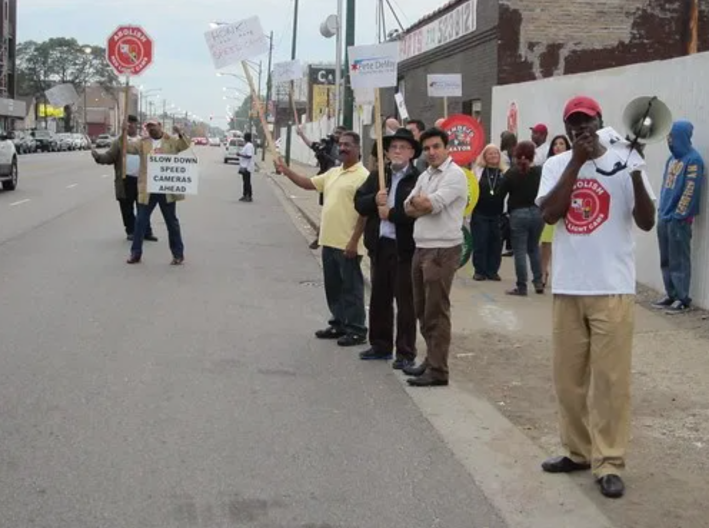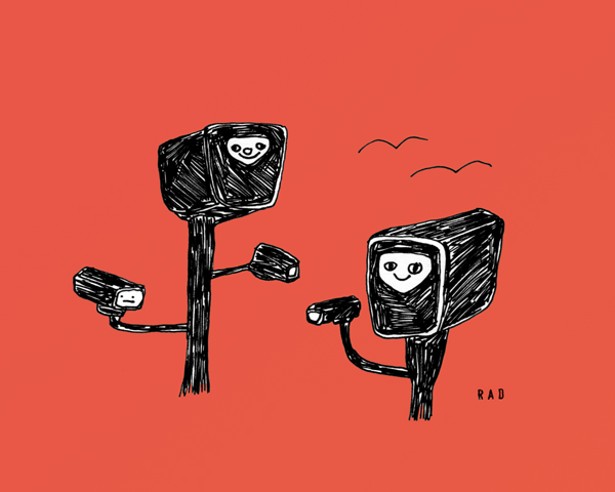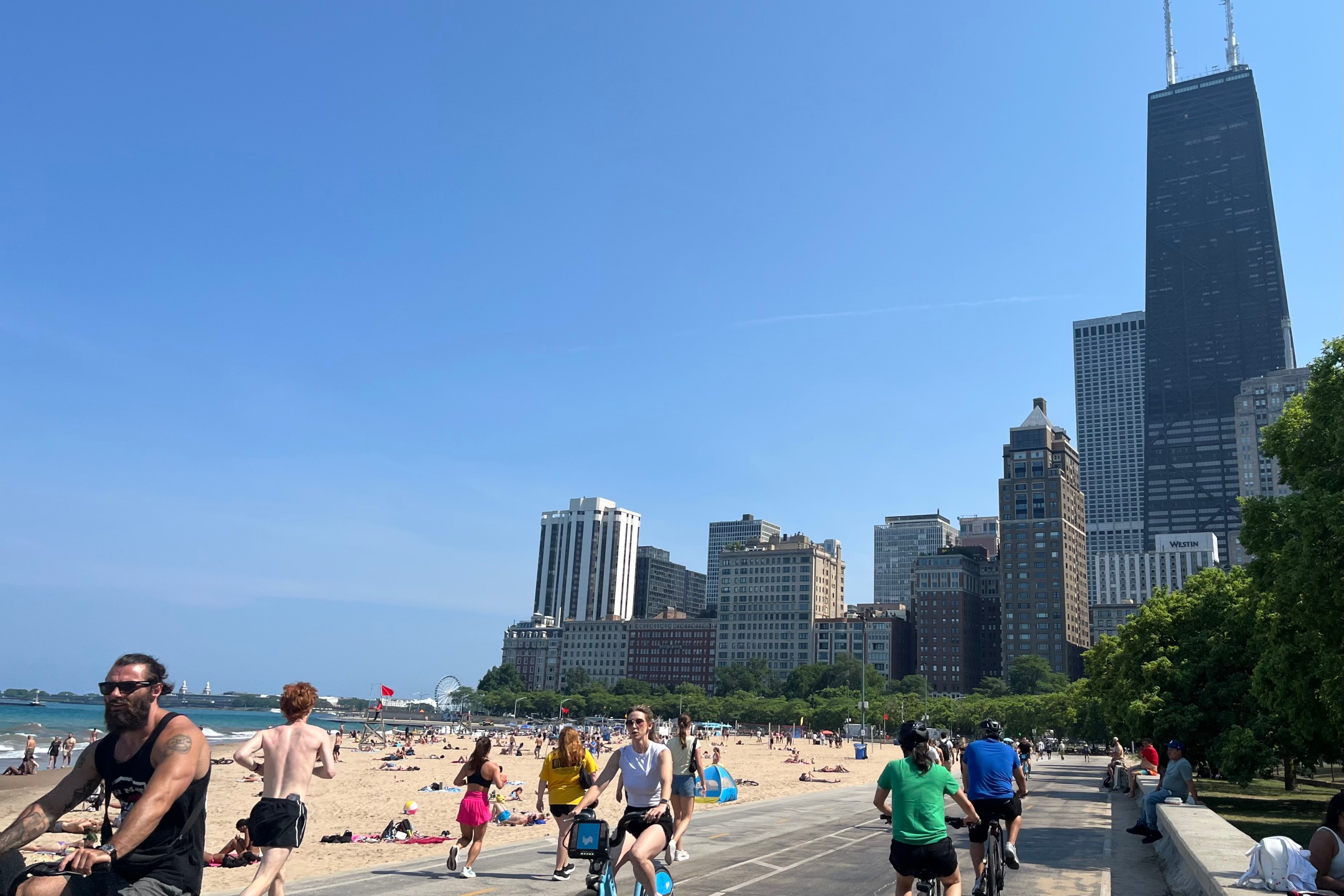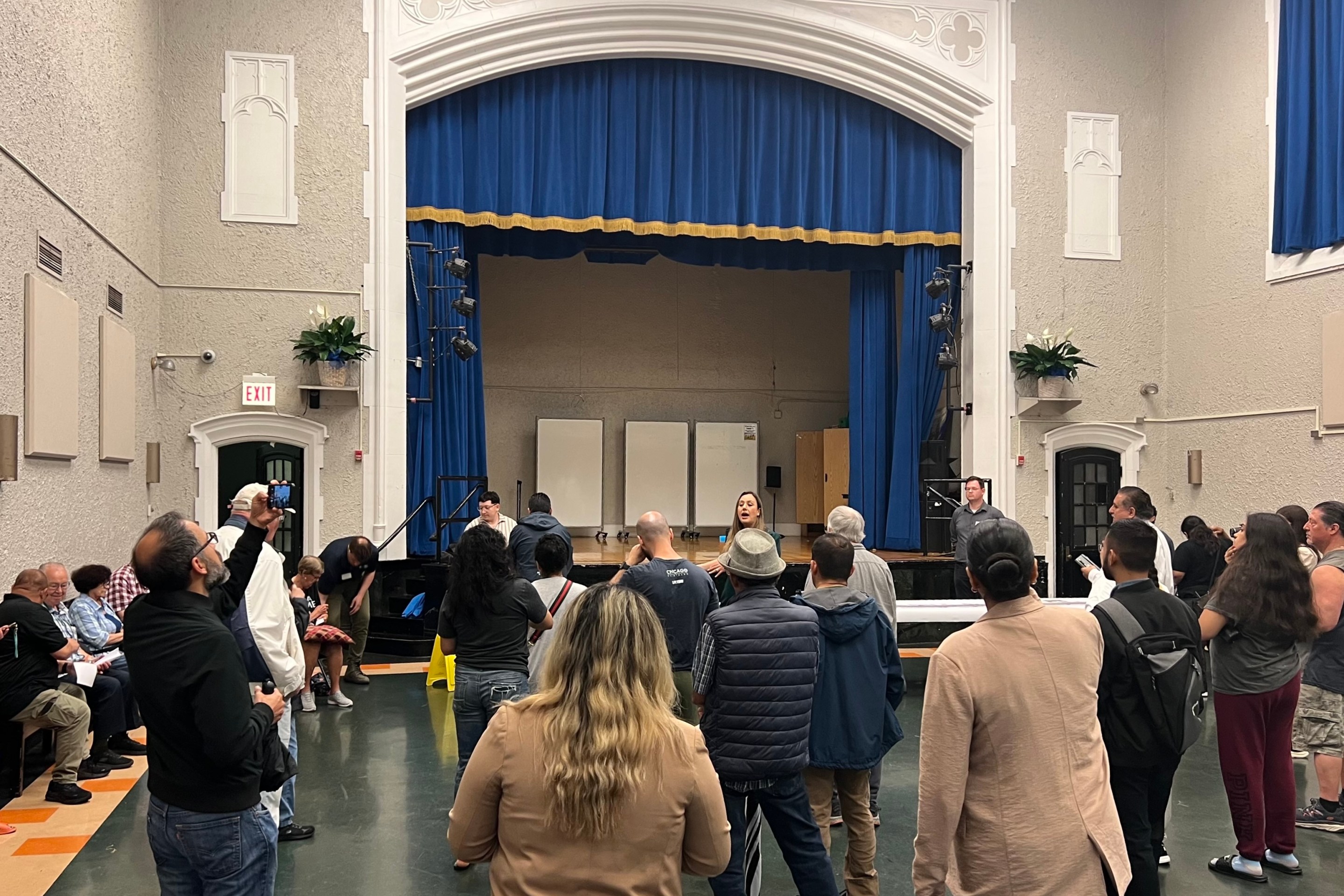Update 10/27/20, 1:15 PM: After the publication of this article, Active Transportation Alliance spokesman Kyle Whitehead contacted Streetsblog to clarify the advocacy group's position. "I understand how you get the impression from the Tribune story that we support the change but our position is a bit more nuanced," Whitehead wrote. It turns out that ATA actually has similar concerns about the equity impacts of Lightfoot's proposal, and is recommending delaying the ticketing rule change. See Whitehead's full statement to Streetsblog below, and read more about the group's position in this blog post.
"This proposal rightly shines a light on the danger of speeding on city streets and the harm it causes. But the timing and penalty structure raise concerns about the program’s impact on racial and social equity, especially during the pandemic.
Black and Brown Chicagoans are already struggling with the inequitable burdens of COVID. City officials should focus on policy changes that lessen that burden and avoid making it worse.
We encourage city officials to delay implementing changes to the ticketing threshold until the equity impacts are understood and addressed.
Active Transportation Alliance has urged city officials to make the following changes to its speed and red-light camera programs.
- Revenue generated from cameras should be used to support a comprehensive traffic safety strategy to prevent crashes and save lives. This strategy should focus resources in the city’s community areas with the highest number of crashes on the West and South Side.
- Implement sliding scale fines and alternatives to payment, such as traffic school or restorative justice programs for low-income drivers. Without this change, the fine would be the same regardless of the person’s ability to pay: $35 for those going 6-10 mph over the limit and $100 for going 11 mph or more. This regressive penalty structure places the greatest burden on low-income residents.
- Study the racial equity impacts of photo enforcement in Chicago. The results should be shared with the public and used to inform changes to the program."
______________________________________________________________________________________
Streetsblog Chicago has been a tireless defender of automated traffic cameras because they're an effective way to reduce serious and fatal crashes, while eliminating the possibility of racially-biased enforcement by police officers. For example, after the Chicago Department of Transportation installed the city's first 51 speed cameras several years ago, the number of speeding cars observed by the cams fell by an average of 43 percent. At some locations, the number of speeders dropped as much as 99 percent.
A Northwestern University Transportation Center study of Chicago’s red light camera program released in March 2017 found that the cameras have had significant safety benefits, resulting in a ten-percent drop in injury crashes, including a 19-percent drop T-bone and/or turning crashes, which are more likely to result in serious injuries than other types of collisions. The report also noted a “spillover effect” that is leading to less red light running at intersections that don’t have the cams. All told, it's clear that Chicago's traffic cam program is saving lives.
That said, my overall feeling is that Mayor Lori Lightfoot's proposal to lower the the threshold for automated speeding tickets from the current 10 mph over the limit to six mph as part of the 2021 budget is not a great idea, at least during the COVID-19 pandemic. While doing so might be a win for traffic safety in the short term, the strategy raises some economic and racial equity concerns. Moreover, such a tactic is sure to be perceived, right or wrong, by many Chicagoans as an unfair money grab, which could lead to a renewed backlash against the cams and louder calls to abolish the program altogether, which would be counterproductive to safety.
As it stands in Chicago, you can go up to 9 mph over the posted speed limit without getting a speed camera ticket. Drivers clocked at exactly 10 mph over the limit get a $35 fine, while motorists going 11 or more mph over get a $100 ticket.
Under the proposed new rules, the first time you get caught driving 6 to 9 mph over the speed limit you would get a warning. After that you'd be issued a $35 ticket.
According to CDOT spokesman Mike Claffey, part of the motivation for the new rule is the increase in speeding during the pandemic, when traffic has been relatively light, and a correlating spike in fatal traffic crashes. While there were 72 traffic fatalities on Chicago streets from January through September 2019, there were 100 traffic deaths during the same period this year. Most of the increase has been among motorists: 28 out of the 72 fatalities in 2019 were car occupants, but this year that number has risen to 58, a 107-percent increase.
It's worth noting that, unlike peer cities that have converted travel and parking lanes to emergency bus and bike lanes and pedestrian space during the pandemic, Chicago has done relatively little during the crisis to encourage non-car modes and calm traffic.
The default speed limit in Chicago is 30 mph. If the new rule was successful in limiting most drivers to 35 mph near speed cameras, that would, in fact, be a win for safety. Studies show that while pedestrians struck at 20 mph almost always survive, and those struck at 30 mph have a roughly 50/50 chance of survival, those struck at 40 mph almost always die.

As such, the Active Transportation Alliance appears to be supporting Lightfoot's proposal. “Even an incremental reduction in the speed of cars lessens the likelihood of a fatal crash, especially when a car strikes someone who’s walking or biking,” spokesman Kyle Whitehead told the Chicago Tribune. He added that the group would like to see income-based sliding-scale fines to make the tax less regressive.
That would be great, but it's not clear that such a system would even be legal under current local laws. So it's definitely not happening anytime soon.
[Update: After the publication of this post ATA contacted Streetsblog to clarify that the group does not support immediately implementing Lightfoot's plan -- see their statement at the top of this post.]
I don't see the regressive nature of Chicago's speed camera tickets (rich and poor people pay the same fees) to be such a problem under the existing fine structure. If you're going 10 mph or more over the limit in a 30 mph zone, that's really dangerous and egregious, and it's pretty easy to avoid if you pay any attention to your speedometer, so it merits a significant fine.
36 to 39 mph in a 30 mph zone seems like more of a gray area to me. Yes, it's more dangerous than 35, and in a perfect world no one would drive over the speed limit at all. Ideally, we would lower the default speed limit further to reduce the possibility of severe injury crashes, at least on residential streets.
But while going 10 mph or more over the speed limit is indefensible and deserves a punishment, going a bit more than 5 mph over isn't nearly as egregious, and it's probably really widespread. In my experience, staying exactly within 5 mph of the speed limit requires a lot more attention to your speedometer than avoiding going 10 mph over does. (Streetsblog Chicago cofounder Steven Vance disagrees: "I know how to drive a consistent speed without constantly monitoring the speedometer," he claims.)
It's not clear whether reining in people going a few miles over 35 would have much effect on the current traffic fatality spike. But, while the fee is avoidable, it does seem pretty obvious that the new rule would result in a lot more people getting $35 fines, which appears to be what Lightfoot is banking on.
That's not a trivial amount if you're a working-class person living in a South or West Side neighborhood with sub-par transit access and major public safety challenges, who feels you have no choice but to drive to an essential job and to do necessary errands. People who have the advantage of being able to work from home during COVID-19 are more likely to be middle class or wealthier. And during this airborne respiratory pandemic, many Chicagoans don't feel safe riding the CTA. (But it's worth noting that transit use has not been found to be a major source of viral transmission.)
Moreover, a traffic fine policy that would disproportionately impact people of color seems particularly tone-deaf in the wake of the recent Black Lives Matter protests, when there's a renewed focus on rooting out racially inequitable enforcement.

As such such, the optics of Lightfoot fining more people for less-harmful speeding violations right now would be really bad. The existing, relatively reasonable, speed camera fee structure has previously been widely portrayed by other politicians and anti-cam activists as nickle-and-diming taxpayers and balancing the budget on the backs of the working class. While lowering the threshold for tickets would have crash prevention and mitigation benefits, many more Chicagoans would see it as a transparent scheme by the mayor to use safety as an excuse to raise money to address the city's $1.2 billion budget shortfall.
And as more people learn about this policy, there's sure to be plenty of grandstanding by aldermen on the issue, and protests by the anti-cam crowd. At the moment, speed cams are relatively uncontroversial, but if that changes we could see a new movement to abolish the cameras altogether, which would mean more egregious speeding and serious crashes. Earlier this year the Illinois House passed legislation to ban red light cams in much of the state, so it's not that far-fetched a scenario.
It would be great if no one ever drove six miles over the speed limit on Chicago streets. Maybe at some point it will be less problematic from an equity standpoint and politically safer to lower the speed cam threshold. However, during the current multi-pronged health/economic/racial justice crisis, I'm inclined to let sleeping dogs lie.
But there's definitely room for differences of opinion on this issue, and even us Streetsblog Chicago staffers aren't all totally on the same page about it. Steven indicated that he'd support the new fee structure if the revenue could be earmarked for street redesigns to improve traffic safety. But SBC assistant editor Courtney Cobbs said, "I think it's a bad idea... If safety were really at the heart of it, we'd see the money go to redesigning roadways to limit speeding."
I'm realize that many Streetsblog readers may disagree with Courtney and me on this matter. Feel free to make your argument for or against the proposal to start ticketing drivers going six or more mph over the speed limit in the comments section.





